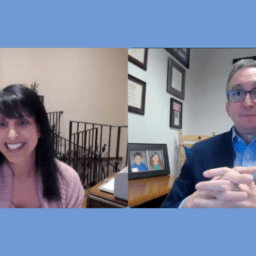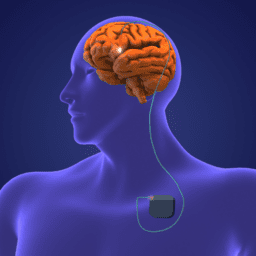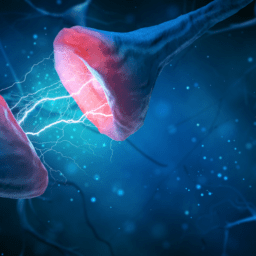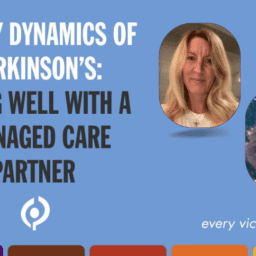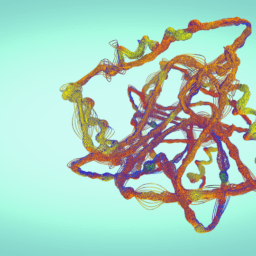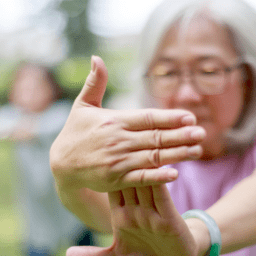Platelets and Parkinson’s. GFAP, PDD, and MCI. Meditation and physical exercise. The efficacy of focused ultrasound. Air pollution and Parkinson’s risk. Here’s what’s new in the world of Parkinson’s this month.
PARKINSON’S ARTICLES
- Using data from the Parkinson’s Outcomes Project, researchers found an association between a person with Parkinson’s reported quality of life and “caregiver strain.” The study, published in Parkinsonism & Related Disorders, highlights the critical role of Parkinson’s care partners and caregivers.
- A study of people with Parkinson’s living in the southeastern United States found that men may experience worse Parkinson’s-related quality of life and more depression than women living with Parkinson’s. Data from the study, which included 127 men and 72 women, showed that men exhibited lower quality of life related to mobility, activities of daily living, emotional well-being, cognitive impairment, communication, and depressive symptoms. The researchers noted that the observed sex differences may not be generalized to people in other U.S. regions and/or countries.
- Another study exploring biological sex and Parkinson’s found that activity differed in multiple genes in the brain depending on the person’s sex, which may contribute to the ways Parkinson’s impacts men and women differently. Results from the study, published in npj Parkinson’s Disease, showed that males are more frequently affected by muscle rigidity, while females more often report intense tremors.
- Researchers at Mater Research and The University of Queensland have identified a previously unknown genetic link between platelets and Parkinson’s. Analyzing data from large-scale genetic studies, the researchers found a broader variation in platelet size in people with Parkinson’s, suggesting that platelet parameters could be potential biomarkers for early detection of Parkinson’s.
- In two mouse models, researchers in Denmark explored how suppressing carnitine palmitoyl-transferase 1 (CPT1) function might impact Parkinson’s symptoms. The studies showed that suppressing CPT1 helped reduce both motor and non-motor symptoms. The findings were published in npj Parkinson’s Disease.
- Results from another mouse model of Parkinson’s suggest that microglia (the immune cells of the brain) play an important role in preventing or delaying the onset of motor symptoms in the early stages of Parkinson’s.
- A study investigating REM sleep behavior disorder (RBD) found higher levels of toxic alpha-synuclein aggregates in the stool of people with RBD than in people with Parkinson’s and healthy controls. The findings suggest that measuring alpha-synuclein clumps in the stool may allow clinicians to make earlier Parkinson’s diagnoses.
- Findings from a study published in Experimental Gerontology suggest that people with Parkinson’s have an approximately double risk of developing osteoporosis than people without Parkinson’s. Through the study, the researchers also identified five genes that have the potential to help diagnose and predict both conditions.
- Nervtex’s MoDAS artificial intelligence (AI) system was recently approved by the China National Medical Products Administration, making it the first video-based AI-powered medical device for the assessment of movement disorders.
- In other AI news, researchers at Kaunas University of Technology and the Lithuanian University of Health Sciences are using artificial intelligence to identify early signs of Parkinson’s via voice data. They hope their method will allow clinicians to make earlier Parkinson’s diagnoses.
- With a $2.5 million grant from The Michael J. Fox Foundation for Parkinson’s Research (MJFF), Newel Health will advance the research and development of Soturi, a digital therapeutic app designed to help people with Parkinson’s get personalized medication and treatment plan optimization.
- Researchers from the University of Queensland identified a gene associated with an increased risk of Parkinson’s that causes an accumulation of “cell debris” in the brain. The gene, Endophilin A1, can stop the process through which the body and brain recycle cell waste, leading to the build-up of toxic clumps.
- Researchers in Spain who assessed levels of microRNAs (miRNAs) in the blood found that a combination of four miRNAs may help predict the onset of Parkinson’s in people who carry a LRRK2 mutation and who show early signs of Parkinson’s in brain scans. The study was published in npj Parkinson’s Disease.
- Findings from another study published in npj Parkinson’s Disease suggest that plasma GFAP (glial fibrillary acidic protein) has the potential for distinguishing people with Parkinson’s-related dementia and predicting the likelihood that mild cognitive impairment (MCI) will turn into dementia in people with Parkinson’s.
- C4X Discovery recently launched a precision medicine platform, PatientSeek, following insights from a successful research collaboration with Garvan Institute of Medical Research. These insights, the drug development company believes, have the potential to help identify the most effective treatments and match those treatments with people with Parkinson’s who are most likely to benefit.
- In an abstract released ahead of the American Academy of Neurology annual meeting, researchers at the Barrow Neurological Institute in Phoenix highlight the associations between Parkinson’s and air pollution. Their research also identified a hot spot in the Mississippi-Ohio River Valley.
- A study from France that analyzed data from more than 70,000 women followed for 15 years indicates that women who used the blood cholesterol-lowering medications atorvastatin (name brand Lipitor) and simvastatin (name brand Zocor) for at least five years may have a lower risk of developing Parkinson’s than women not taking these lipophilic statins.
- Researchers in China who analyzed data from 46 observational studies found a strong association between Parkinson’s and certain autoimmune diseases, including inflammatory bowel disease (IBD), Sjögren’s syndrome, and bullous pemphigoid (a rare skin condition). The study—which found no significant associations between Parkinson’s and the autoimmune conditions multiple sclerosis, lupus, or rheumatoid arthritis—was published in Frontiers in Immunology.
PARKINSON’S treatments and THERAPIES
- A study published in npj Parkinson’s Disease found that mindfulness meditation was more effective than physical exercise in minimizing depression and maintaining emotional stability in people with mild-to-moderate Parkinson’s. The small randomized clinical trial, which was conducted in Hong Kong, also showed that meditation and exercise both led to an immediate, positive impact on cognitive function.
- Results from a trial led by researchers at the University of Maryland School of Medicine suggest that a minimally invasive focused ultrasound procedure can lead to significant improvements in tremors, mobility, and other Parkinson’s motor symptoms. The research was published in the New England Journal of Medicine.
- The clinical-stage biotechnology company Neuron23 has begun dosing in a Phase 1 trial of NEU-723 for the treatment of Parkinson’s. NEU-723 is a highly potent and selective brain-penetrant LRRK2 inhibitor (meaning it is designed to block LRRK2, an enzyme coded by the LRRK2 gene whose mutations can lead to Parkinson’s).
- Research from Spain published as a short communication in Parkinsonism & Related Disorders showed that subthalamic deep brain stimulation (DBS) can benefit people with Parkinson’s regardless of whether or not their Parkinson’s is caused by a gene mutation.
- Annovis Bio has received approval for additional European clinical trial sites for the ongoing Phase 3 study of buntanetap for the treatment of Parkinson’s. The Phase 3 trial expands upon proof-of-concept data from a Phase 2a study that demonstrated that people with Parkinson’s treated with buntanetap showed statistically significant improvements in both motor function and coding speed.
- AC Immune SA has received grants from MJFF and Target ALS Foundation funding research programs to enable diagnosis of TDP-43 (TAR DNA-binding protein 43), which has been recognized as an important target in several neurodegenerative conditions, including amyotrophic lateral sclerosis (ALS), frontotemporal lobar degeneration (FTLD), Alzheimer’s, and Parkinson’s. AC Immune SA CEO Andrea Pfeifer said the company “firmly believe[s] that a sensitive and accurate diagnostic will represent a breakthrough for the field and will accelerate clinical development of therapeutic candidates against this novel target.”
- MedRhythms announced the successful completion of a multi-site feasibility study of MR-005, its investigational asset in development for the treatment of gait deficits in Parkinson’s. The results revealed enhanced quality of life and high participant adherence rates, the primary endpoints for the study. Preliminary results also showed improvements in motor symptoms and mobility.
- Vibrant, a drug-free, pill-like capsule that has been cleared by the US Food and Drug Administration (FDA) and became available for doctors to prescribe this month, can help people with Parkinson’s (and anyone who experiences frequent constipation) manage constipation. Rather than releasing medication after being swallowed, Vibrant vibrates, which stimulates nerve cells in the colon to help promote food’s movement through the digestive tract.
- BioNxt Solutions recently shared updates about its transdermal Rotigotine patch, a dopamine agonist approved for the treatment of Parkinson’s and restless legs syndrome (RLS) in Europe and the United States. BioNxt is preparing for its randomized, crossover, two-period, single-dose pilot study (which will begin later this year) to assess the relative bioavailability, skin adhesion, and skin tolerance of their new formulation compared to the name-brand product.
- IntelGenx Corporation announced a research collaboration with Per Svenningsson, MD, PhD, of the Karolinska Institute, to plan and conduct a multicenter, randomized, double-blind, placebo-controlled clinical study to investigate the use of IntelGenx’s Montelukast VersaFilm for the treatment of Parkinson’s. Montelukast was approved for use in the U.S. and Europe in 1998 to treat asthma and seasonal allergic rhinitis. Because it works by blocking the cysteinyl leukotriene receptor 1 (CysLT1), which has been linked to inflammation (including in the brain), it may have the potential to treat neurological conditions marked by neuroinflammation, such as Parkinson’s.
- The California Institute for Regenerative Medicine (CIRM) recently awarded Ryne Biotechnology a $4 million Clinical Stage Research Program grant, which will enable the company to advance its lead candidate RNDP-001, an iPSC-derived dopamine neuron progenitor for the treatment of both inherited and idiopathic forms of Parkinson’s.
- LISCure Biosciences and Celltrion will collaborate to identify and develop Parkinson’s treatments that target the gut microbiome.
- Research published in the Journal of Geriatric Psychiatry and Neurology suggests that Nuplazid (pimavanserin) may be the most effective atypical antipsychotic for minimizing Parkinson’s disease psychosis (PDP).
PARKINSON’S LIVING WELL STORIES
- Harold says bluebirds of happiness—and the support of others living with Parkinson’s—help him live well every day.
- Siblings in Ireland recently completed a 100-mile challenge to raise funds for the Parkinson’s Association of Ireland in honor of their mother, who is living with Parkinson’s.
- Other family members hitting the trail to raise awareness and funds for Parkinson’s include a mother and daughter who recently hiked the entire Appalachian Trail.
- Singer/songwriter David Seering wrote “The Vow” in honor of his wife of 20 years, who is living with Parkinson’s.
PARKINSON’S SURVEYS, CLINICAL TRIALS, and volunteer opportunities
- PreActive PD Study – This study, available for both English and Spanish speakers, implements an occupational-therapist-delivered physical activity behavior change coaching intervention in people with early-stage Parkinson’s. The study is based upon a recent single-arm cohort feasibility study (Pre-Activate PD/HD) that evaluated acceptability, implementation, and resulting effect estimates of the Pre-Activate PD intervention in 13 participants. The intervention provides one-on-one coaching sessions from an occupational therapist to individuals newly diagnosed with Parkinson’s. The individualized structured support in the sessions is aimed at facilitating and optimizing exercise uptake as part of an effective self-management program. Learn more and enroll here.
- Gamma Wave Trial – Sponsored by the Massachusetts Institute of Technology (MIT), this trial will investigate the efficacy of a non-invasive method of neuromodulation called Gamma Entrainment Using Sensory Stimulation (GENUS) for managing Parkinson’s motor symptoms. GENUS is administered via light, sound, and tactile stimulation devices and has been tested on cognitively normal individuals and individuals with mild Alzheimer’s, and the device was found to be safe for use and effective for entrainment in both populations. Learn more here.
- YOPD Survey – A doctoral student in occupational therapy at Russell Sage College is conducting a research study to determine the impact of Young Onset Parkinson’s Disease on cognition, quality of life, and life roles. If you received a Parkinson’s diagnosis before age 60, you can learn more and complete the survey here.
- Phoenix-Area Residents – Deep Brain Stimulation (DBS) and Exercise Study at Barrow Neurological Institute – This study aims to help researchers learn more about how aerobic exercise affects symptoms of Parkinson’s and the quality of life in people who have DBS. They will also look at brain wave activity using the Medtronic Percept DBS device in order to better understand what changes in the brain might be caused by exercise and how that affects Parkinson’s symptoms. Reach out to Markey if interested.
- Colorado Oral Strengthening Device – The University of Colorado is looking for adults with Parkinson’s to participate in a research study exploring how a novel low-technology device can achieve an increase in tongue strength comparable to standard-of-care exercise using tongue depressors but with the kinematics and simple biofeedback of existing high-cost devices. Research has shown that tongue resistance exercises paired with biofeedback have resulted in improved tongue strength to support chewing, control of food and liquid in the mouth, and propulsion of material for a swallow. Learn more and enroll here.
- PD GENEration – The Parkinson’s Foundation has announced a major expansion of its national study to make genetic testing and counseling more available for people with Parkinson’s. The study (NCT04057794) hopes to enroll 15,000 people in all 50 US states, Puerto Rico, and the Dominican Republic. Details are available here. For questions about enrollment, email genetics@parkinson.org. Know someone who speaks Spanish and wants to learn more and maybe participate in the study? Share this link.
- Parkinson’s Progression Markers Initiative – In an expanded study, the Parkinson’s Progression Markers Initiative (PPMI) is currently working to enroll up to 100,000 people with and without Parkinson’s. The study team is especially seeking to enroll people diagnosed with Parkinson’s in the past two years and who are not yet on treatment, as well as people 60 and older who aren’t living with Parkinson’s but have a risk factor for it (such as a close relative with Parkinson’s, a known Parkinson’s-associated mutation, and/or REM sleep behavior disorder). The observational study is also enrolling people with no known connection to Parkinson’s to serve as a control group. Learn more here.
- TOPAZ (Trial of Parkinson’s and Zoledronic Acid) – Caroline Tanner, MD, PhD, is recruiting participants for a new remote clinical trial led by a team of Parkinson’s experts at UCSF in partnership with researchers from across the country. The study aims to help people with Parkinson’s or parkinsonism maintain their independence by reducing the risk of hip fractures. The study will test if zoledronate, an FDA-approved medication for osteoporosis, can prevent fractures in people with Parkinson’s, whether or not they have osteoporosis. To learn more, visit the study website at TOPAZstudy.org, email TOPAZ@ucsf.edu, or call (415) 317-5748.
- Join Google and LSVT in Project Euphonia – LSVT Global has partnered with Google on an exciting research project called Project Euphonia to help improve automatic speech recognition software for people with speech disorders. These disorders may make using devices like Google Home, The Nest, and other Smart devices, Siri, Alexa, or speech-to-text frustrating. To do this, LSVT Global needs samples of disordered speech to train the system. You are encouraged to enroll if you’ve been diagnosed with Parkinson’s, PSP, MSA, or CBD with mild, moderate, or severe speech disorders. Participation is easy, can be done from your own home, and can earn you a $60 gift card! Learn more here.
- G2019S LRRK2 Parkinson’s: Increasing Awareness and Genetic Testing Program – This program aims to support the development of precision medicine intended to treat people with genetic forms of Parkinson’s. Up to 15% of cases of Parkinson’s disease have an underlying genetic cause, yet many people have never had genetic testing. This research program will be very important in supporting the future development of a new oral precision medicine treatment for one of the most common genetic forms of Parkinson’s, aimed at slowing its progression. To learn more, visit geneticpd.com.
- A PD Avengers research group is undertaking a new project called Sparks of Experience, designed to be more systematic about collecting and considering the experiences and ideas that come from the curious minds of people living with Parkinson’s. “In the past, these sometimes quirky ideas inspired by lived experience have turned into significant new directions for research. It could be said we are trying to capture serendipity,” the team says. To learn more and get involved, see the flyer here.
- Game-based Exercise Project – Researchers at the University of Auckland are investigating how games can be used as potential rehabilitation systems. This project aims to develop suitable game-based exercise experiences to help people living with Parkinson’s. If you are 45 or older, living with a chronic condition such as Parkinson’s, and/or are experiencing age-related health conditions, you are invited to participate in a survey that will help the researchers to understand the community’s interests in games and gameplay in the context of exercise and rehabilitation. To learn more and take the 15-minute survey, see the flyer here.
- SPARX3 – A Phase 3 Clinical Trial about Exercise and Parkinson’s – This research team is currently seeking volunteers to participate in a clinical trial about the effects of aerobic exercise on people with Parkinson’s. Learn more and see if you qualify here. For more details, contact Katherine Balfany at SPARX3@ucdenver.edu.
- PAIRing Up – If you are a person with Parkinson’s or a care partner to someone with Parkinson’s, you are invited to participate in an online survey to address neuropsychiatric (cognition, depression, anxiety) concerns in Parkinson’s. The survey aims to learn about the needs and priorities for clinical care, education, support, and research related to neuropsychiatric symptoms. To learn more and participate, click here to download the flyer.
- A multidisciplinary research team in the UK is investigating how to best use music to help people with Parkinson’s manage symptoms related to movement and mood. This includes research about music for dancing and is the first study to incorporate the new Dance Sophistication Index for people with Parkinson’s. To learn more and take a 30-minute survey, click here.
- The University of Oulu and collaborators from Aalborg University, Fraunhofer University, the University of Manchester, the University of Glasgow, the University of Lisbon, and the University of Melbourne, are conducting a survey for people with Parkinson’s and Parkinson’s care partners about self-care. Complete the survey here to share your self-care strategies and techniques. You can also review ideas submitted by others and add them to your own self-care toolbox.
- Home-based Exercise and Cognitive Behavior Therapy – University of Alabama in Huntsville
- Speech and Telemedicine Study – The Purdue Motor Speech Lab
- Parkinson’s and Service Dogs – University of Groningen, Netherlands
- Neurology Study Interest Registry – University of Rochester
- Park Test – University of Rochester
For more of what’s new in Parkinson’s news, check out our full series here.
WANT MORE PRACTICAL ARTICLES LIKE THIS?
You can learn much more about living well with Parkinson’s today through our Every Victory Counts® suite of resources. Each manual is packed with up-to-date information about everything Parkinson’s. Click the link below to reserve your manual(s).







